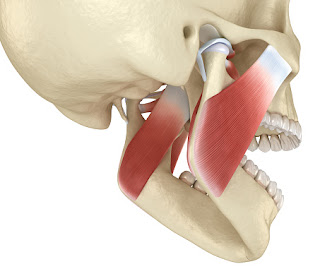Treatment Options For Post-Concussion Syndrome
In post-concussion syndrome (PCS), a patient with a mild traumatic brain injury (mTBI) experiences persistent symptoms from the injury. The symptoms might last months, years, or even decades after the event if left untreated.
Post-Concussion Syndrome Signs and Symptoms
All of the following are symptoms of post-concussion syndrome:
Anxiety
Headache
Blurred vision
Hormone Dysregulation
Car sickness or nausea with motion
Irritability
Change in blood pressure
Light Sensitivity
Change in (or loss of) taste or smell
Loss of balance
Confusion
Low energy or motivation
Delayed response to questions
Nausea
Depression
Noise sensitivity
Difficulty concentrating
Occasional heartbeat irregularities
Difficulty finding things
Persistent neck pain
Difficulty reading
Ringing ears
Treatment
There are two option treatments for post-concussion syndrome, generally speaking: active rehabilitation and medication. Active rehabilitation is currently the best treatment protocol for restoring concussion damage. Because of the multidisciplinary nature of active rehabilitation, most doctors cannot offer a comprehensive active rehabilitation program (it is cost-prohibitive to have so many therapists on staff). Your alternative, medication, should be a last resort: While it doesn’t address the underlying problems, it can make the symptoms more bearable.
Active Rehabilitation: The Best Post-Concussion Syndrome Treatment
The brain’s ability to recover via neuroplasticity is remarkable. Patients suffering from post-concussion syndrome can and do experience notably improved symptoms after active rehabilitation, assuming it is done correctly.
Medications for Post-Concussion Syndrome:
When you consider medications, it’s extremely important to consider what the long-term effects could be and what effect taking multiple medicines will have on your liver… not to mention the side effects. Medicines for chronic pain, nausea, emotional symptoms, and other issues can really take a toll on your body when combined.
Diagnosis
No single test will prove you have persistent post-concussive symptoms.
Your doctor may want to order a scan of your brain to check for other potential problems that could be causing your symptoms. A computerized tomography (CT) scan or magnetic resonance imaging (MRI) may be performed to detect structural brain abnormalities.
If you're experiencing a lot of dizziness, you may be referred to a doctor who specializes in ear, nose and throat complaints.
A referral to a psychologist or licensed counselor may be in order if your symptoms include anxiety or depression, or if you're having problems with memory or problem-solving.
An emergency room doctor often makes the initial diagnosis of a concussion. Once discharged, you may seek care from your family doctor or primary doctor. He or she may refer you to a doctor who specializes in brain and nervous system disorders (neurologist) or a brain rehabilitation specialist (physiatrist).
If you are referred to a specialist, it's a good idea to be well prepared for your appointment. Here's some information to help you get ready for your appointment and know what to expect from your doctor.




Comments
Post a Comment